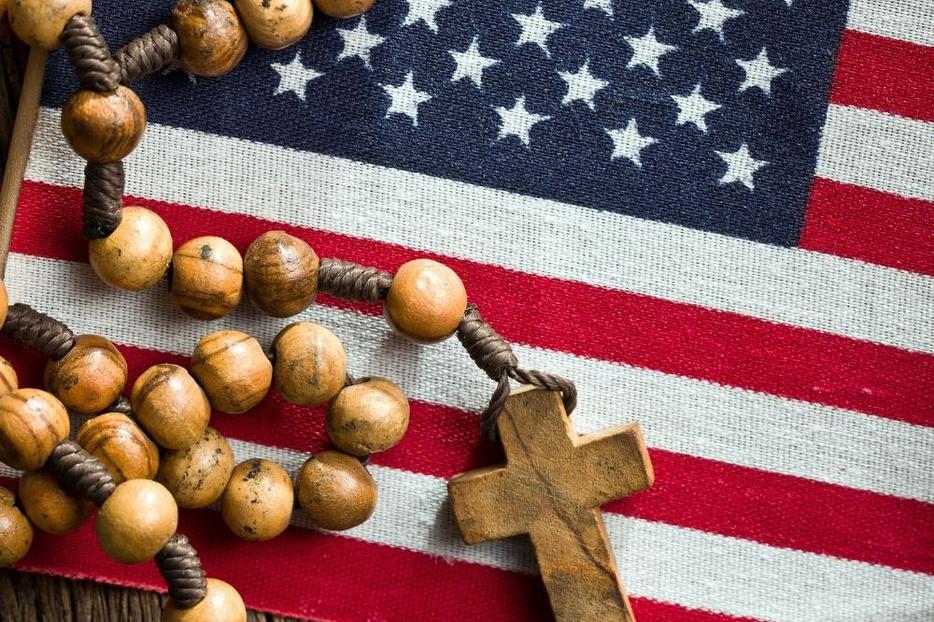Governors in West Virginia, Utah, Idaho Sign Religious-Freedom Bills
Govs. Jim Justice of West Virginia, Spencer Cox of Utah, and Brad Little of Idaho — all Republicans — signed legislation in their states to enhance religious-freedom protections.

Govs. Jim Justice of West Virginia, Spencer Cox of Utah, and Brad Little of Idaho — all Republicans — signed legislation in their states to enhance religious-freedom protections.
The new West Virginia law establishes stronger religious-freedom protections for student organizations at public universities. The Utah law allows residents to bring civil action against government entities if those entities violate their religious freedom. And the new Idaho legislation protects religious rights for faith-based adoption centers and fostet-care homes.
West Virginia
The West Virginia legislation amends a 1931 West Virginia law that guarantees “free expression on campus.” The amendment ensures that public universities cannot discriminate against student organizations, including faith-based organizations, if those groups require that members adhere to certain values.
Under the new protections, a public university cannot deny a religious, political or ideological organization any benefit or privilege generally made to other organizations based on a requirement that its leaders or members “affirm or adhere to the organization’s sincerely held beliefs, comply with the organization’s standards of conduct, and further the organization’s mission or purpose.”
Matt Sharp, a senior counsel at Alliance Defending Freedom, said in a statement that the new protection safeguards “the ability of belief-based student organizations to associate with those who align with the organization’s mission and purpose.”
“Religious clubs must remain free to require their leaders and members to adhere to their religious beliefs and values,” Sharp said. “This critical legislation specifically ensures that student groups at public universities can freely choose their leaders and members, and further their mission, absent of discrimination.”
Utah
The new Utah law recognizes religious freedom as “a fundamental right” and sets statewide standards for bringing civil action against a local or state government entity when a person believes that entity has violated his or her religious freedom.
Under the new law, which mirrors some of the federal protections in the Religious Freedom Restoration Act, people can bring civil cases against public entities if they substantially burden their religious freedom by withholding a government benefit; assessing civil, criminal or administrative penalties or damages; or exclude a person from a government program or from access to a government facility or service.
Greg Chafuen, a legal counsel at Alliance Defending Freedom, said in a statement that “citizens shouldn’t be left defenseless when their government attempts to burden their ability to live and worship according to their faith.”
“This law provides a sensible balancing test for courts to use when reviewing government policies that infringe upon the religious-freedom rights of Utahans,” Chafuen said. “The law doesn’t determine who will win every disagreement, but it does ensure that every Utahan — regardless of their religious creed or political power — receives a fair hearing when government action forces a person to violate his or her religious beliefs.”
Idaho
The new Idaho law prevents state and local government entities from discriminating against adoption centers or foster-care providers for adhering to their religious beliefs.
Under the law, entities cannot deny contracts, grants or agreements based on the organization’s adherence to policies and procedures that align with “a sincerely held religious belief.” This also applies if the adoption center or foster-care provider’s sincerely held religious beliefs contribute to decisions about where to place a child.
Chafuen said in a statement that faith-based providers “have served children looking for loving homes for centuries while living out their sincerely held religious beliefs.”
“We applaud Idaho for prioritizing the well-being of kids by prohibiting state and local government officials from discriminating against adoption and foster care providers and parents simply because of their religious beliefs and moral convictions,” Chafuen said. “This law helps children benefit from as many adoption and foster care agencies as possible, faith- and non-faith-based alike.”













